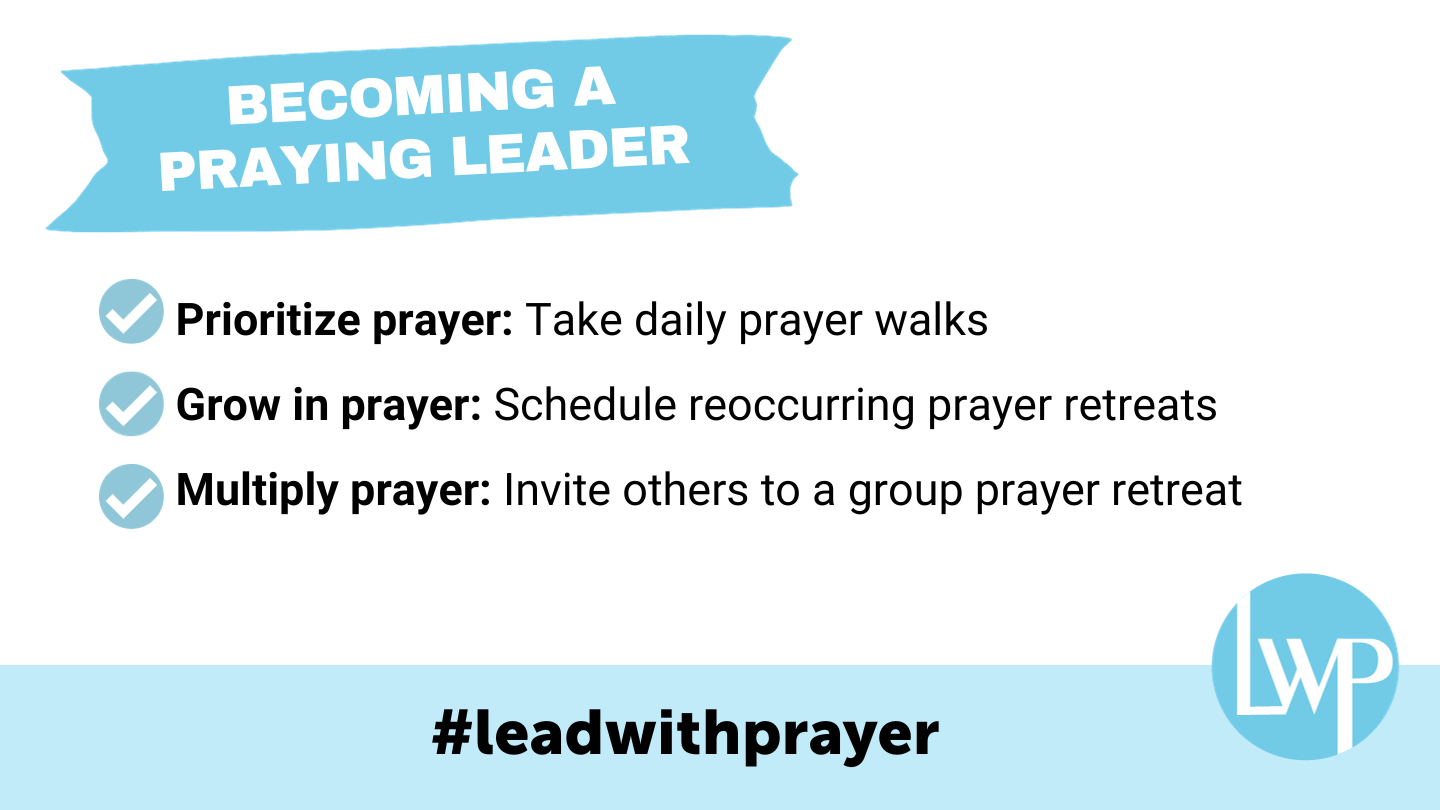Lead With Prayer: Cultivate Personal and Organizational Prayer Habitsنموونە

Silence and Solitude
Are our conversations with God one-sided?
Even after making time and space for prayer, many find it difficult to listen to God. The noise of daily life can drown out His voice. It can be hard to still ourselves and wait for Him to speak. It may even feel like a waste of time. But without intentional listening, we are unlikely to hear the “gentle whisper” of God’s voice (1 Kings 19:11–13).
Author Evelyn Underhill writes: “Our deepest contacts with God are so gentle because they are all we can bear. We need quiet to experience them.” We train our hearts to listen by growing in a spiritual discipline that was essential to Jesus: silence and solitude.
Jesus regularly demonstrated this discipline when He retreated from others to spend time in God’s presence (Luke 5:16, Matthew 14:23). These times of intentional retreat fueled Jesus’ ministry, allowing Him to remain rooted in God—and they’ll do the same for us.
Stepping away from pressing tasks to refocus on God begins to right-size our view of our own significance. It also loosens the grip of the idol of influence, which has convinced many leaders that influence should be our ultimate pursuit. Jesus explains that influence is the world’s definition of leadership, not His (Matthew 20:25–28).
Richard Foster writes that solitude with God “crucifies our need for importance and prominence...We are removed from ‘where the action is.’ That, of course, is exactly what we need. In silence and solitude God slowly but surely frees us from our egomania. In time we come to see that the really important action occurs in solitude. Only then are we able to enter the hustle and bustle of today’s machine civilization with perspective and freedom.”
The all-knowing, all-loving God of the universe longs to be in relationship with us and has insight into our lives that we do not. Failing to prioritize listening to the wisest, most loving voice in the universe seems both arrogant and irrational. Regardless of what opportunities we’re stepping back from, retreating to commune with God is worth the time we invest.
As we develop the practice of silence, it may be most easily practiced in solitude. We can incorporate silence in our daily lives by setting aside time each day—even just a few minutes at first—to sit and listen to God. But as we grow our listening muscles, we can even invite a few minutes of silence in a meeting or another communal setting, encouraging others as well as ourselves to make space for the voice of God to be heard.
By following Jesus’ example of prayerful leadership and seeking times of silence and solitude with God, we can cultivate a deeper awareness of His presence in our daily lives and learn what it means to truly abide in Him.
____________
Application:
To prioritize prayer: Take daily prayer walks. Invite God to speak, then spend time with Him in silence.
To grow in prayer: Take a personal prayer retreat on a scheduled basis (monthly, yearly, etc.).
To multiply prayer: Schedule a group prayer retreat with other leaders within your organization or with a group of friends.

About this Plan

Jesus proved that prayer and leadership belong together. While many Christian leaders struggle with lackluster prayer lives, others have discovered an intentional prayer life is the nonnegotiable constant of lasting, fruitful Christian life and leadership. In this devotional, we explore the spiritual habits, rhythms, and prayer practices of world-changing leaders to help you cultivate personal and organizational commitments to prayer.
More
پلانە پەیوەستەکان

Be Thankful
Charis Bible College Summer Bible Reading Plan

In Anticipation of the Glory That Is to Come

The House That Jesus Built

The Mysteries of Praise

Praying for Teen Girls: Partnering With God for the Heart of Your Daughter

Colossians

Rising to New Heights With Your Shepherd-King 7-Day Plan

I Love Jesus: 11-Day Devotional by Mac Powell
